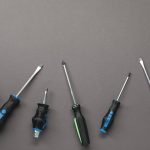1. Why Consider Alternatives to Dental Implants?
Dental implants are a popular and effective solution for replacing missing teeth, but they can also be expensive and require invasive procedures. Many people look for budget-friendly alternatives due to financial constraints, medical conditions, or personal preferences. Understanding why some individuals seek alternative options can help you make an informed decision about your dental care.
Cost Concerns
One of the biggest reasons people seek alternatives to dental implants is cost. Dental implants can range from $3,000 to $5,000 per tooth, and full-mouth implants can cost upwards of $20,000 to $50,000. Not everyone has dental insurance that covers these expenses, making it necessary to explore more affordable options.
Medical Limitations
Some individuals may not be good candidates for dental implants due to health conditions such as:
- Insufficient Bone Density: Dental implants require a strong jawbone for support. If you have bone loss, you may need additional procedures like bone grafting, which adds to the cost and complexity.
- Chronic Health Issues: Conditions like diabetes, autoimmune disorders, or osteoporosis can affect healing after implant surgery.
- Smoking Habits: Smokers have a higher risk of implant failure due to slower healing and increased infection risks.
Lengthy Treatment Process
The process of getting dental implants can take several months, as it involves multiple stages such as consultation, surgery, healing time, and crown placement. Some people prefer quicker solutions that provide immediate results without the long recovery period.
Alternative Options Comparison
If youre considering alternatives to dental implants, here’s a quick comparison of some common budget-friendly solutions:
| Alternative Option | Average Cost (per tooth) | Main Advantages | Main Disadvantages |
|---|---|---|---|
| Dentures | $300 – $5,000 (full set) | Affordable, non-invasive, easy to adjust | May slip or feel uncomfortable over time |
| Dental Bridges | $500 – $1,500 | Permanently fixed, looks natural | Requires modifying adjacent teeth |
| Resin-Bonded Bridge (Maryland Bridge) | $900 – $2,500 | Less invasive than traditional bridges | Not as durable for back teeth |
| Snap-On Smile (Removable Veneers) | $1,000 – $3,500 | Non-invasive, quick cosmetic fix | Not a permanent solution for missing teeth |
Making the Right Choice for Your Needs
If cost or medical concerns prevent you from getting dental implants, there are still plenty of options available. The best choice depends on your budget, oral health condition, and personal preferences. In the next sections, we will explore each alternative in detail to help you find the best fit for your needs.
2. Partial Dentures: A Flexible and Affordable Option
Partial dentures are a great alternative for those looking for a cost-effective way to replace missing teeth. They offer a removable and budget-friendly solution while maintaining both functionality and aesthetics. Unlike dental implants, which require surgery, partial dentures provide a non-invasive option that can restore your smile quickly and affordably.
What Are Partial Dentures?
Partial dentures are custom-made dental appliances designed to replace one or more missing teeth. They consist of a gum-colored base that supports artificial teeth, which blend seamlessly with your natural teeth. These dentures are held in place with metal or acrylic clasps that attach to the surrounding teeth.
Benefits of Partial Dentures
Choosing partial dentures comes with several advantages, especially for those on a budget:
- Affordability: One of the most cost-effective tooth replacement options.
- Non-Invasive: No surgery is required, making it a pain-free alternative.
- Quick Solution: Can be made and fitted in just a few weeks.
- Improved Functionality: Helps with chewing and speaking clearly.
- Aesthetic Appeal: Designed to match your natural teeth for a seamless look.
- Adjustable: Can be modified if additional teeth are lost in the future.
Comparison: Partial Dentures vs. Dental Implants
If youre trying to decide between partial dentures and dental implants, heres a quick comparison:
| Feature | Partial Dentures | Dental Implants |
|---|---|---|
| Cost | More affordable | Expensive |
| Procedure | Non-invasive | Surgical procedure required |
| Treatment Time | A few weeks | Several months |
| Aesthetic Appeal | Blends with natural teeth but may be noticeable | Looks and feels like real teeth |
| Durability | May need replacement over time | Long-lasting with proper care |
| Comfort Level | Takes time to adjust to wearing them | Feels more natural once healed |
| Maintenance | Requires daily cleaning and removal at night | Cared for like natural teeth (brushing & flossing) |
Who Should Consider Partial Dentures?
If you are missing several teeth but still have some healthy ones left, partial dentures can be an excellent option. They work well for individuals who:
- Arent ready for or cant afford dental implants.
- Prefer a non-surgical tooth replacement solution.
- Need a fast way to restore their smile and chewing ability.
- Arent eligible for permanent restorations due to bone loss.
Caring for Your Partial Dentures
To keep your partial dentures in good shape, follow these simple care tips:
Daily Cleaning Routine:
- Rinse them after eating to remove food particles.
- Brush them daily with a soft toothbrush and denture cleaner.
- Avoid using regular toothpaste, as it can be too abrasive.
- Soak them overnight in a denture solution to maintain moisture.
- Avoid dropping them to prevent cracks or damage.
Mouth Care Tips:
- Brush your remaining natural teeth twice a day.
- Massage your gums to improve circulation and oral health.
- SCHEDULE REGULAR DENTAL CHECKUPS TO ENSURE A PROPER FIT AND ORAL HYGIENE.
The Bottom Line on Partial Dentures
If youre looking for an affordable, non-surgical way to replace missing teeth, partial dentures might be the perfect choice. They provide functionality, improve appearance, and allow you to eat and speak comfortably—all without the high cost of dental implants. By properly caring for them, you can extend their lifespan and enjoy a confident smile every day.
![]()
3. Dental Bridges: A Fixed and Cost-Effective Choice
Dental bridges are a popular and budget-friendly option for replacing missing teeth. Unlike implants, which require surgery and a lengthy healing process, dental bridges use adjacent teeth as anchors to support an artificial tooth in the gap. This makes them a quicker and more affordable solution for restoring your smile.
How Do Dental Bridges Work?
A dental bridge consists of one or more artificial teeth (pontics) that are held in place by crowns on the neighboring natural teeth. These crowns act as supports, ensuring stability and durability. The process typically requires only two visits to the dentist, making it a convenient alternative to implants.
Benefits of Dental Bridges
- Cost-Effective: Less expensive than dental implants while still providing a permanent solution.
- Non-Surgical: No need for invasive procedures like bone grafting or implant surgery.
- Quick Treatment: Can be completed in just a few weeks compared to months required for implants.
- Restores Functionality: Helps with chewing, speaking, and maintaining facial structure.
- Natural Appearance: Modern dental bridges blend seamlessly with natural teeth.
Comparison: Dental Bridges vs. Implants
| Feature | Dental Bridges | Dental Implants |
|---|---|---|
| Cost | More affordable | More expensive |
| Treatment Time | A few weeks | Several months |
| Surgical Procedure | No surgery required | Surgical implantation needed |
| Lifespan | 10-15 years with proper care | Can last a lifetime |
| Bone Preservation | No direct benefit to jawbone health | Helps maintain bone density |
| Aesthetic Appeal | Natural-looking but may require replacement over time | Mimics natural teeth closely and lasts longer |
Are Dental Bridges Right for You?
If youre looking for an affordable way to replace missing teeth without undergoing surgery, dental bridges could be the perfect solution. They offer a fixed, durable, and natural-looking alternative at a fraction of the cost of implants. Consult with your dentist to see if this option suits your needs.
Caring for Your Dental Bridge
Proper oral hygiene is essential to extend the lifespan of your dental bridge. Here are some tips:
- Brush twice daily with fluoride toothpaste.
- Use floss or interdental brushes to clean around the bridge.
- Avoid biting down on hard foods that could damage the bridge.
- Visit your dentist regularly for check-ups and professional cleanings.
A well-maintained dental bridge can provide years of functionality and confidence in your smile. Explore this cost-effective alternative if youre searching for a reliable tooth replacement option!
4. Resin-Bonded Bridges: A Minimally Invasive Alternative
Resin-bonded bridges, also known as Maryland bridges, offer a cost-effective and minimally invasive option for replacing missing front teeth. Unlike traditional dental bridges or implants, this option requires less preparation and is more budget-friendly.
What Are Resin-Bonded Bridges?
A resin-bonded bridge consists of a false tooth (pontic) that is attached to the adjacent teeth using a metal or ceramic wing. Instead of drilling down neighboring teeth like with traditional bridges, these wings are bonded to the back of existing teeth, making the procedure much less invasive.
Benefits of Resin-Bonded Bridges
This type of bridge comes with several advantages that make it a great alternative for those looking for an affordable and simple solution:
- Minimally Invasive: No need for extensive tooth reshaping or surgery.
- Cost-Effective: More affordable than dental implants and traditional bridges.
- Quick Procedure: Can often be completed in just one or two visits.
- Preserves Natural Teeth: Since there is minimal alteration to adjacent teeth, they remain intact.
- Aesthetic Appeal: Blends well with natural teeth, offering a discreet replacement.
Comparison: Resin-Bonded Bridges vs. Other Alternatives
| Feature | Resin-Bonded Bridge | Traditional Bridge | Dental Implant |
|---|---|---|---|
| Invasiveness | Minimal | Requires reshaping adjacent teeth | Surgical procedure required |
| Cost | Lower | Moderate | Highest |
| Treatment Time | 1-2 visits | A few weeks | Several months |
| Lifespan | Around 5-10 years | Around 10-15 years | Permanent with proper care |
| Suitability for Front Teeth | Best suited for front teeth | Suits various teeth locations | Suits all tooth replacements |
Who Is a Good Candidate?
This option is best suited for individuals who have healthy adjacent teeth and need to replace a missing front tooth. If you grind your teeth or have a strong bite force, your dentist may recommend another solution, as resin-bonded bridges are not as durable as implants or traditional bridges.
Caring for Your Resin-Bonded Bridge
To extend the lifespan of your resin-bonded bridge, follow these simple care tips:
- Avoid biting into hard foods like ice or nuts directly with the bridge.
- Maintain good oral hygiene by brushing and flossing regularly.
- SCHEDULE regular dental check-ups to ensure the bridge remains secure.
- If you notice any loosening, visit your dentist promptly for adjustments.
If youre looking for a budget-friendly and minimally invasive solution to replace missing front teeth, resin-bonded bridges could be the right choice for you. Consult with your dentist to determine if this option suits your needs.
5. Snap-On Veneers: A Temporary and Non-Invasive Solution
If youre looking for a quick and affordable way to enhance your smile without surgery, snap-on veneers might be the perfect option. These removable dental appliances cover missing, chipped, or discolored teeth, giving you a natural-looking smile without the high cost of dental implants.
What Are Snap-On Veneers?
Snap-on veneers are custom-made, removable covers that fit over your existing teeth. Unlike traditional veneers that require permanent bonding, these are designed to be worn as needed, making them a flexible solution for those who want to improve their smile without committing to an expensive procedure.
Benefits of Snap-On Veneers
Snap-on veneers offer several advantages over dental implants and other restorative procedures:
- Affordable: A fraction of the cost of dental implants.
- Non-Invasive: No surgery or drilling required.
- Painless: No need for anesthesia or recovery time.
- Instant Results: Provides an immediate transformation.
- Removable: Can be taken off whenever necessary.
How Do Snap-On Veneers Compare to Other Alternatives?
| Feature | Snap-On Veneers | Dentures | Dental Bridges |
|---|---|---|---|
| Cost | Low | Moderate | High |
| Surgical Procedure Required | No | No | No (but requires tooth alteration) |
| Permanence | Temporary & Removable | Removable | Semi-Permanent |
| Aesthetic Appearance | Natural-Looking | Varies | Natural-Looking |
| Main Benefit | No commitment & easy to use | Covers multiple missing teeth affordably | Permanently fills gaps without implants |
Are Snap-On Veneers Right for You?
If you have missing, damaged, or discolored teeth and want an inexpensive way to enhance your smile, snap-on veneers could be a great choice. However, they are not a permanent solution and may not be suitable for severe dental issues. Consulting with a dentist can help determine if this option fits your needs.
Where to Get Snap-On Veneers?
You can order custom snap-on veneers online or through some dental offices. Many companies offer at-home impression kits so you can get perfectly fitted veneers without visiting a dentist. Be sure to choose a reputable provider to ensure quality and comfort.
Snap-on veneers provide an easy, non-invasive way to improve your smile while avoiding the high costs of dental implants. If youre looking for an instant confidence boost without breaking the bank, this budget-friendly alternative is worth considering.


